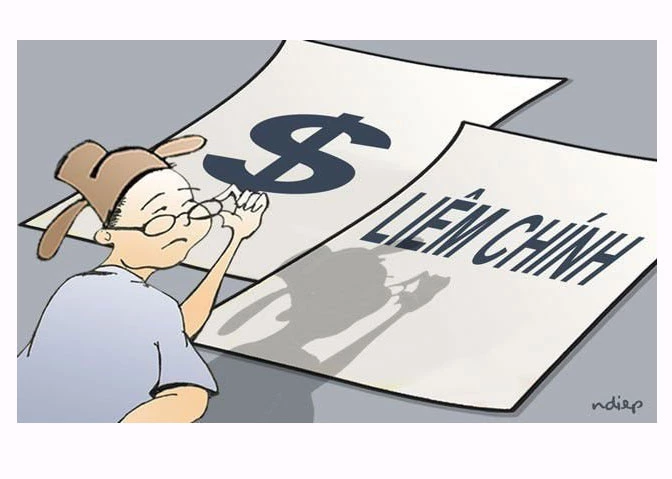Focusing on building a culture of thrift and integrity
Building and practicing a culture of thrift is an effective measure to curb wastefulness. Integrity is a fundamental moral value, serving as a principle, standard, and benchmark for cadres and Party members in both their work and daily life.
 |
| Illustration. |
In recent years, efforts to practice thrift and combat waste in our country have seen positive changes and yielded tangible results. Notably, many violations by officials have been promptly detected and strictly handled; a contingent of cadres with integrity, competence, and credibility has been built to meet the requirements and tasks; legal institutions have been improved, creating a unified political and legal framework to ensure effective anti-corruption, anti-negative practices, and socio-economic management. Administrative reforms have become more open and transparent, while preventive measures against corruption and misconduct have been strengthened. Particularly, the combined strength of the nation has been promoted, consolidating public trust, aligning the Party’s will with the people’s aspirations, and contributing to building a prosperous and happy country.
In the context of rapid digital transformation and deep international integration, the demand for improving public governance efficiency, harnessing resources for sustainable development, and building a new set of cultural values, of which thrift and integrity are key, has become urgent and strategic. This contributes to fostering determination, consolidating confidence, and uniting the political system and the entire nation on the path of national construction and development, realizing the aspiration of national advancement.
Building and practicing a culture of thrift and integrity in preventing and combating waste is an important responsibility of every individual, organization, and the whole society. To establish such a culture, it is necessary to continue thoroughly implementing the Party’s guidelines and the State’s policies and laws on thrift and waste prevention.
At the same time, it is essential to effectively carry out Directive No. 42, dated January 16, 2025, of the Politburo on strengthening the Party’s leadership in education on the virtues of diligence, thrift, integrity, righteousness, impartiality, and selflessness. This must be regarded as a central, regular, and continuous task of all agencies, organizations, cadres, and Party members. Moreover, educational and communication efforts should be strengthened to raise awareness among individuals, organizations, communities, and the whole society about the importance of a culture of thrift and integrity for sustainable development. The responsibility of leaders in directing and managing thrift and anti-waste practices must be emphasized, tied closely to their assigned duties. State management must be reinforced with stricter discipline and regulations to ensure the effective and efficient use of national resources, especially in the management of natural resources, the state budget, and public assets.
Building and practicing a culture of thrift and integrity in the fight against corruption and waste is one of the key tasks of every individual, organization, and the entire society. Particularly, in the current context of streamlining the administrative apparatus and implementing the two-tier local government model, the need to foster a culture of thrift and integrity has become even more urgent.
Hieu Anh





READER COMMENTS